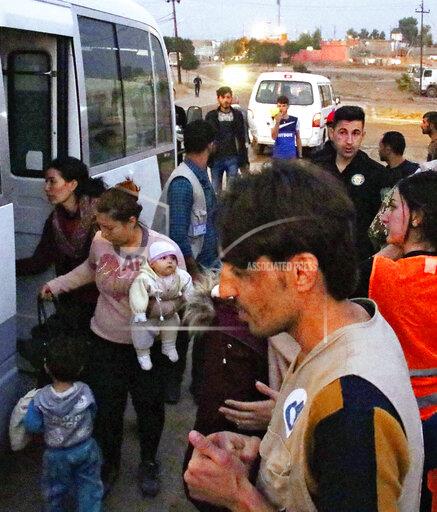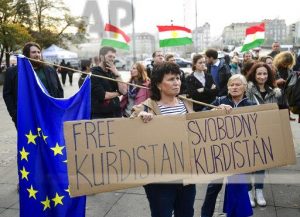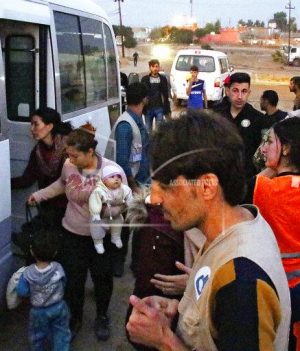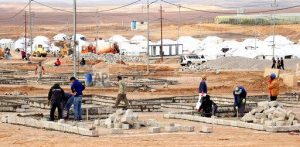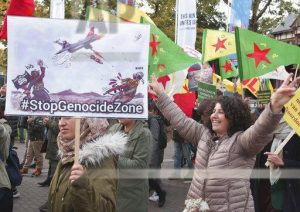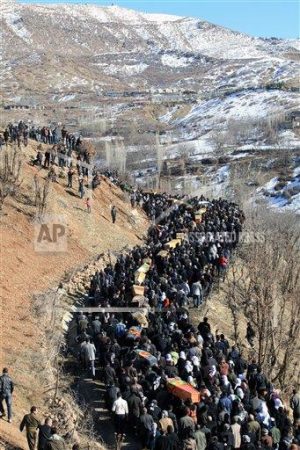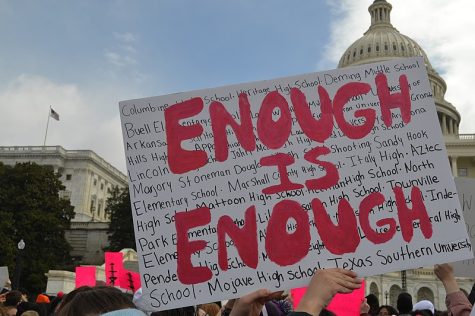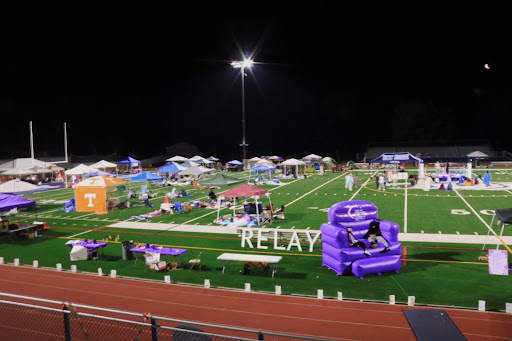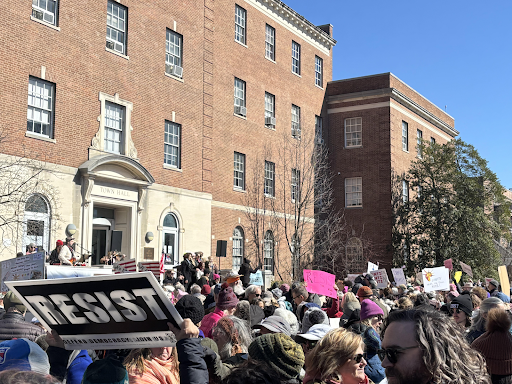The Shameful U.S. Exit from Syria
Ever since Donald Trump impulsively put into action his plan to remove U.S. troops from Kurdish-controlled, northern Syria (a section of the geo-cultural region known as “Kurdistan”), Turkey has taken it as an opportunity to wage what they call a war on terrorism, but what looks more like an invasion into these Kurdish held lands.
For many, many years, the Kurdish people have been forced to combat some of the worst forms of hatred and violence from groups such as Al Qaeda and ISIS, as well as instances such as the Kurdish and Armenian Genocides. Throughout recent history, when Syrian Troops that were loyal to Authoritarian leader Bashar Al-Assad moved towards conflicts in the Syrian Civil War in the lower reaches of the country, Kurds took the chance to establish control over large swaths of land in the region. For them, this was proving to be another chance to possibly establish an official regional and cultural identity as the Kurdish people. “ ”
Throughout this struggle for independence, the people of this region have offered some of the most vehement support to both U.S. and U.K. troops in the fight against ISIS. The Kurds willingly aided these troops in exchange for a sense of protection from Turkish and ISIS jihadists, which without their presence were to be targeted and potentially killed for their beliefs.
Unfortunately, Turkey has proven its propensity for targeting minority groups in the region and supporting terrorist organizations. “The victims of Turkey’s past and present genocide cry out for justice,” said Director of the Program on Peace-building and Rights at Columbia University’s Institute for the Study of Human Rights, David L. Phillips. In his address delivered to the Ninth Annual St. Andrews Human Rights and Religious Freedom Reception on Capitol Hill in November, last year, Phillips specifically addressed a multitude of examples in which Turkey encouraged or carried out hostile movements towards ethnic minorities.
He cited the attack in the city of Deir el-Zor recently where Turkish backed forces captured and executed Father Hovsep Bedoyan, the pastor of the Armenian Catholic community of Qamishli, as well as his father, while they were on their way to visit the Armenian Catholic Church in Deir el Zor.
“Mosul’s 60,000 Christians were executed, displaced, or trafficked as sex slaves. The same fate befell Christians in the Nineveh Plains and northern Syria. ISIS converted ancient churches into mosques, madrassas, and prisons. They tore down crosses and used chisels to deface tombstones in church graveyards. Christian churches and institutions, including schools and hospitals, were destroyed by Turkish–backed militias. ISIS execution videos showed the beheading of priests and community leaders, which included images of eleven desecrated churches,” Phillips said at the solemn event.
He continued, “The Turkish authorities have seized and failed to return Armenian Church properties. The Turkish government-controlled even the election of the next Armenian Church leader, the Patriarch, in Turkey.”
Annie Simonian Totah, Armenian Assembly of America Board Member, said in her statement of approval for David Phillips’ comments, “In his remarks on the occasion of the ninth annual St. Andrew’s Human Rights and Religious Freedom Reception, he ”
Throughout all this chaos and misery, the one factor that led to the most significant improvement in peace was the presence of a large number of U.S. troops on the ground in Northern Syria. However, now that Trump has hastily removed this presence, this safeguard for the Kurdish people, the Turkish have moved in and began their efforts to destroy the stability that has been established. Jihadists are being re-armed. Kurds and other Syrians are being executed, poisoned, and hit with airstrikes.
Dani Ellis, a British volunteer who became involved in the Kurdish situation and who lives in Syria had this to say regarding Trump’s withdrawal: “It’s a disaster. It’s a catastrophe. The loss of life here, that the Kurds and the other people living in Northern Syria suffered under ISIS, is roughly equivalent, proportionally, to the loss of life and destruction that the U.K. suffered during the second world war.”
“I don’t want to be in Syria forever. It’s sad! It’s death!” said President Trump during an address on January second, last year.
As to how Trump views the situation more recently as it has developed and more information into heinous actions done by Turkey and Turkish backed groups have gotten out and gained global attention, Trump notoriously referred to the Kurds as, “no angels,” and the conflict as, “a lot of sand… they got a lot of sand over there so… there’s a lot of sand that they can play with.”
The actions that have been done by the Americans are truly shameful. We have essentially thrown one of our greatest allies in the fight against ISIS to the wolves without any regard for their well being.
As someone who only supports our nation’s military to participate in conflicts that are undoubtedly necessary and morally justifiable and generally supports the withdrawal of troops, I can confidently say this was a disgusting display of exploitation and poor judgment on the part of our Commander in Chief President Trump.
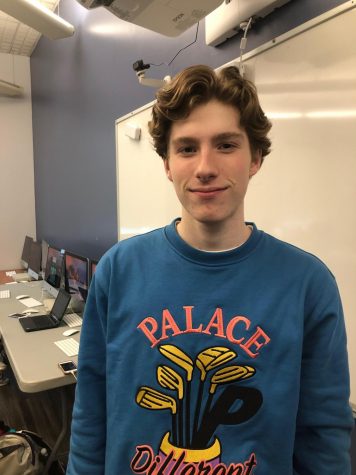
Jordan Larrabee is currently a senior at Mendham High School. Jordan
is a returning member of Mendham's journalism class and writes for the
paper, The...


